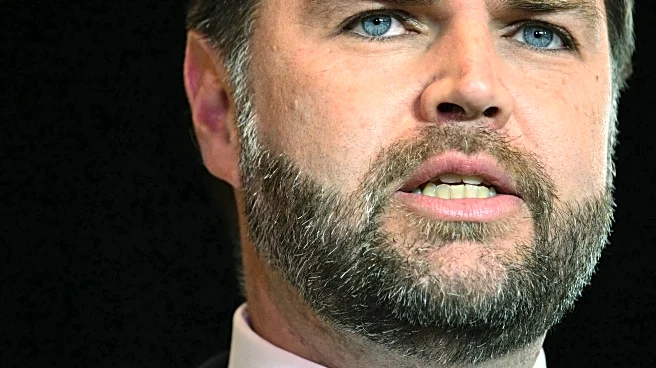What's Happening?
A group of moderate Senate Democrats has agreed to a compromise, potentially ending the longest government shutdown in U.S. history. The deal, reached on Sunday night, involves dropping a key demand for a guaranteed extension of Obamacare subsidies. This
decision enabled a Senate vote where eight Democratic defectors broke the filibuster, clearing the first hurdle to reopen the government after nearly six weeks. The compromise has sparked protests from progressives who accuse moderates of backing down and handing President Trump a victory. The deal includes funding the government through January 30, reversing Trump’s firing of federal employees during the shutdown, and funding food stamps through 2026.
Why It's Important?
The resolution of the shutdown is significant as it impacts millions of Americans who have faced disruptions due to the government closure. The compromise highlights divisions within the Democratic Party, with moderates and progressives at odds over healthcare affordability. The shutdown has been a political battleground, influencing perceptions of President Trump’s leadership and the Republican majorities in Congress. The deal sets a date for a Senate vote on ACA subsidies in December, but lacks assurance of their extension, posing a challenge for Democrats who prioritize healthcare affordability.
What's Next?
The Senate's procedural steps will be followed by a vote in the Republican-led House. The compromise may lead to further political fallout within the Democratic Party, as progressives express dissatisfaction with the concessions made. The upcoming Senate vote on ACA subsidies will test GOP lawmakers, who face pressure from constituents to support healthcare affordability. The shutdown's resolution may influence the trajectory of the Democratic Party's strategy ahead of the midterm elections, as they navigate internal divisions and public opinion.
Beyond the Headlines
The shutdown has exposed deep divisions within the Democratic Party, challenging the notion of a 'big tent' approach. The compromise may have political repercussions, as Democrats aim to highlight healthcare costs, an issue the GOP has yet to address effectively. The shutdown has also revealed cracks in President Trump’s authority within his party, as Republican senators resisted his calls to abolish the filibuster. This resistance underscores potential shifts in GOP dynamics and Trump's influence as the midterm elections approach.















